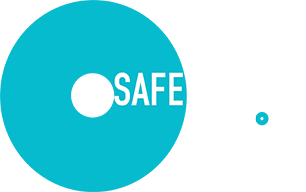This page describes our policy regarding alcohol & drug abuse: Vetpol expects all its staff to perform their duties safely, free from over-use or after effects of alcohol and free from use or after effects of non-prescribed drugs or misuse of prescribed drugs.
This company is committed to providing a safe, healthy and productive working environment for all employees, contractors, customers and visitors involved in its operation. This policy sets out the company’s aims in reducing and managing alcohol and drug problems in the workplace.
Definitions
Alcohol problem – An alcohol problem is defined as any drinking, either intermittent or continual which interferes with a person’s health and/or social functioning and/or work capability or conduct.
Drugs – Any drug, whether illegal, prescribed or over the counter or solvents such as glue, butane, etc.
Drug problem – The use of illegal drugs, the deliberate use of prescribed or over the counter drugs (when not for a medical condition) and the use of solvents, either intermittent or continual which interferes with a person’s health and/or social functioning and/or work capability or conduct.
Legitimate use – In the case of prescribed and over the counter drugs used as prescribed or in accordance with the licensed instructions for use, their possession and use by the employee is acknowledged as legitimate.
Relevant Legislation
The Health and Safety at Work Act 1974 requires employers to protect the health, safety and welfare of their employees and others who may be affected by their activities, as far as is reasonably practicable.
The Management of Health and Safety at Work Regulations 1999 requires employers to carry out a risk assessment to identify hazards in the workplace and put measures in place to minimise these risks.
The Misuse of Drugs Act (1971) is the main legislation covering drugs and categorises them as classes A, B and C. These drugs are called controlled substances and class A drugs are considered to be the most harmful under this act. It is illegal for anyone, whether at work or not to produce, supply or be in possession of illegal drugs. Employers may be liable if they knowingly allow dispensing, manufacturing, possession, using or selling on their premises.
The conduct of SQPs and bodies regulating the conduct of SQPs is covered by the Veterinary Medicines Regulations 2005, as amended. Details of the Code of Practice for SQPs is linked here.
Policy
Vetpol requires all employees to report for duty free from the effects of alcohol and drugs. It is not acceptable to be under the influence of alcohol or drugs at work or consume alcohol or drugs during hours of work- this includes paid and un-paid breaks.
Employees found in possession of illegal drugs or using illegal drugs whilst at work will normally be reported to the police.
In some cases the legitimate use of prescribed drugs can affect a person’s ability to do their job. In such instances employees should inform their manager.
This policy is primarily concerned with ongoing alcohol and drugs problems which are classed as capability issues, i.e. where the problem impacts on the person’s ability to do their job. One-off cases where the rules of this policy are breached, such as someone reporting for work clearly under the influence of alcohol or drugs or obviously suffering from the effects of alcohol will be classed as a conduct issue and will be dealt with under normal disciplinary procedures.
Very serious incidents such as violence or assault at work whilst under the influence of alcohol or drugs or dealing illegal drugs at work will be deemed serious misconduct justifying summary dismissal.
In some instances of misconduct where the employee admits to having an alcohol or drug problem, disciplinary proceedings may be held in abeyance subject to successful outcome of treatment.
In instances of serious misconduct where the employee subsequently admits to having an alcohol or drug problem, the support route and the disciplinary route may be implemented in tandem.
This policy will apply equally to all staff regardless of grade, experience or role within the company.
Staff should consider their responsibility under the Health and Safety Act 1974. This means that they must take reasonable care of themselves and others who could be affected by what they do.


